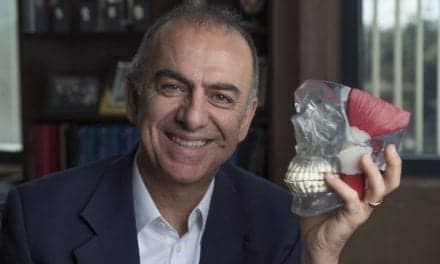Stakeholders predict what the years-long sales pause of Philips’ CPAPs will mean for sleep medicine.
By Lindsey Nolen
In a major shake-up in the sleep therapy space, Philips Respironics announced the discontinuation of several products—the travel CPAP DreamStation Go, positional sleep apnea therapy device NightBalance, and in-lab titration system OmniLab Advanced+—and agreed to a consent decree with the US Department of Justice that’s expected to pause all Respironics CPAP device sales for several years.
The announcements, which come on the heels of Philips’ widespread recall affecting millions of devices worldwide, have left many concerned about their impact on sleep therapy solutions.
Patricia Patterson, MD, FAASM, DABSM, medical director at the University of Alabama at Birmingham Medicine’s Sleep/Wake Disorders Center, says she was not surprised to hear Philips discontinued so many sleep and respiratory products. But she says the the loss of the NightBalance positional therapy device, critical for treating certain sleep apnea patients, and the OmniLab Advanced+ titration system, are significant setbacks.
According to Patterson, finding replacements will involve much time and effort in vendor interviews, budget proposals, and administrative meetings. “While there are other great options available, it is extremely difficult to maneuver through the process in a large academic center to obtain new vendors and equipment,” Patterson says.
Meanwhile, Sleeptopia Inc, a home sleep testing and CPAP device company that serves Kansas and is expanding into Oklahoma, also saw its sleep center operations impacted by Philips’ product discontinuations. Sleeptopia has pivoted toward solutions offered by ResMed, a move echoed by many.
Despite Philips’ cuts, Sleeptopia CEO Kevin Kunz remains optimistic about the future, citing the growing awareness of sleep health and the potential for market expansion. He specifically named React Health as a burgeoning company with promising growth prospects, along with heavyweight ResMed.
“I’m sad to see Philips Respironics kind of be cut at the knees, as they did so much for the industry,” Kunz says. “It just makes me appreciative that ResMed and React Health are doing things in a way that is right for the consumer. I have tremendous respect for both companies.”
Via email, Philips declined to comment for this story.
Sleep Therapy Makers Prepare for Ex-Philips Customers
The changes at Philips are an opportunity for other sleep medicine brands to potentially drive growth and gain loyalty.
Many vendors have reported increased sales after Philips’ 2021 recall, particularly when it became apparent that the remediation process was taking longer than sleep professionals and patients had expected. Supply chain-related issues during the COVID-19 pandemic exacerbated sleep therapy shortages.
In response to market dynamics, ResMed has worked with suppliers to expand the availability of its products, according to a statement from the company. “ResMed has the manufacturing capacity, and we’re confident we have access to the components we need to meet ongoing global market demand for our connected devices,” the statement continues.
Prescription positional sleep therapy device maker Zzoma has seen a surge in inquiries since the recall and product withdrawal announcements, according to Michael J. Markus, PhD, Zzoma executive director. “We’ve been proactively scaling our operations to meet increasing demand. This includes expanding manufacturing capacity, optimizing our supply chain, and potentially opening new distribution centers,” Markus says.
Oral appliance maker Vivos Therapeutics, whose CARE devices were recently cleared by the US Food and Drug Administration to treat moderate and severe sleep apnea, has also recently expanded its manufacturing capacity and optimized supply chains, says R. Kirk Huntsman, co-founder and CEO at Vivos.
“When coupled with the news from Philips and the new policy guidelines from UnitedHealthcare requiring a regimen of oral appliance therapy for all patients seeking hypoglossal nerve stimulation implants, we expect to see accelerating demand for our products going forward,” Huntsman says.
Len Liptak, CEO of oral appliance maker ProSomnus, says he expected a pause in Philips’ sleep therapy device production, given the circumstances surrounding the recalls. However, the specific products targeted and the immediacy and scope of Philips’ decision caught many off guard, he says.
In response, ProSomnus has intensified its interactions with sleep physicians, focusing on sharing clinical data on efficacy, safety, and patient preference for the devices. Mark T. Murphy, DDS, DABDSM, lead clinical faculty for ProSomnus, says in a release, “ProSomnus is positioned to provide patients timely access to care with its clinically proven and patient-preferred precision appliances.”
Alternatives to Philips CPAP Devices
Alternatives to Philips in the positive airway pressure space are limited. The dominant player is ResMed, which recently launched its AirCurve11 series. React Health, which many predict will see an increase in market share, offers its Luna G3 series. There are several travel-friendly CPAP options, including React Health’s new Luna TravelPAP, Transcend’s new Transcend Micro, ResMed’s AirMini, and Breas Medical’s Z2. The only alternative to Philip’s OmniLab Advanced+, of which Sleep Review is aware, is ResMed’s S9 VPAP Tx.
Unfortunately, paying for a non-Respironics CPAP is likely to depend on patients’ medical insurance policies. According to panelists during an American Academy of Sleep Medicine webinar, monetary compensation from Philips for recalled devices is not enough to cover the purchase of a new CPAP. And for patients who received replacement Philips devices, some were left to purchase parts—such as humidifiers and tubing—out of pocket.1
Because insurance policies vary regarding replacements, gaps in coverage, especially for certain populations such as patients covered by Medicaid, are likely to be exacerbated. The panelists also expressed concerns about CPAP shortages and delays in receiving devices.1
Some predict that alternative sleep apnea therapies, such as oral appliances, positional therapies, and neurostimulators, will be more frequently prescribed as the market adjusts.
ProSomnus’ Liptak says the oral appliance company is poised to capture a portion of the CPAP market due to its therapeutic approach of focusing on jaw repositioning and stabilization. “ProSomnus devices are personalized to match the unique airway and dental anatomy of each patient,” he says, noting the devices are covered by reimbursement codes K1027 or E0486. “We also have a team that is trained to provide physicians with the data they need and connect physicians with qualified dental sleep medicine providers in their areas.”
At Vivos, the recent FDA clearance for severe obstructive sleep apnea reflects changing perceptions among physicians, highlighting the increasing acceptance of oral appliances as effective solutions for sleep apnea, according to Huntsman.
Zzoma’s Markus says, “Ultimately, the best choice for a patient depends on individual needs. We encourage patients and healthcare providers to explore the full range of safe and effective sleep apnea therapies available.”
Reference
- American Academy of Sleep Medicine. Webinar: Adapting to the Philips Respironics Sleep & Respiratory Product Portfolio Changes. 2024 Mar 18.
Illustration 35329417 © Skypixel | Dreamstime.com





